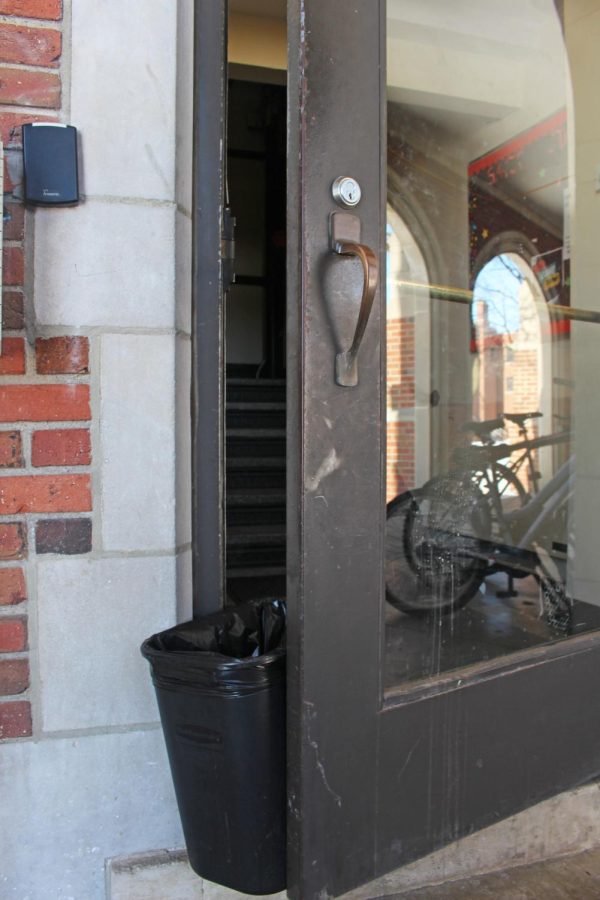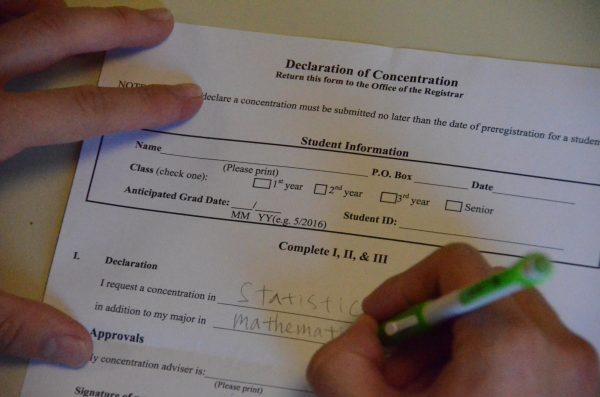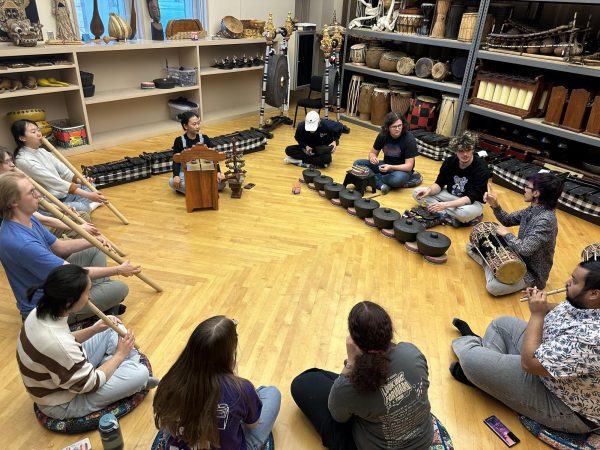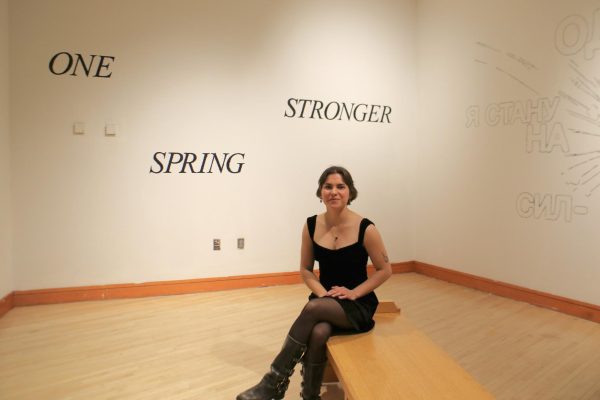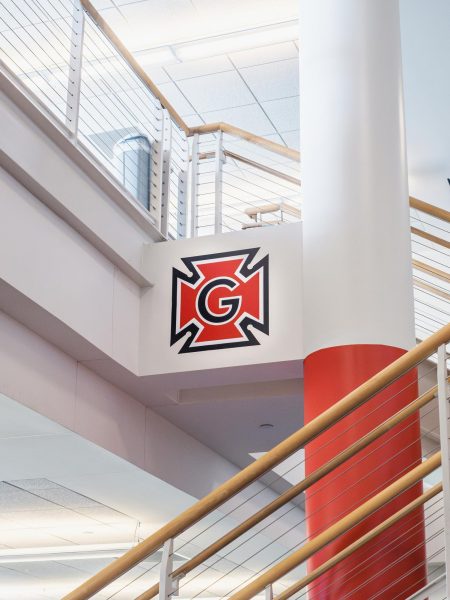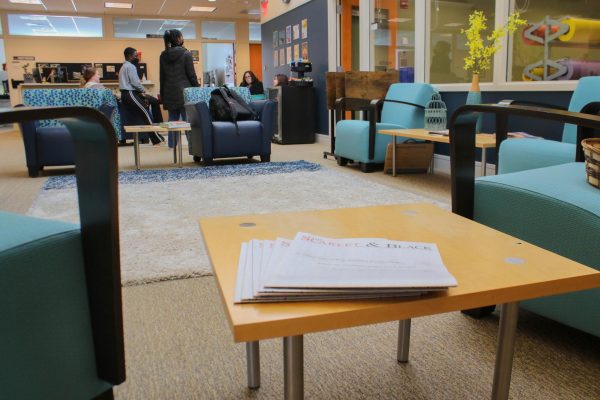Change in winter break policies leads to move-in confusion
A new policy left some students struggling to access campus housing over break.
February 6, 2023
This year, students requesting to stay on campus over winter break were asked to pay a fee of $1000 to cover their time at the College. This new policy — introduced for the first time this year by the residence life team — contrasts with the College’s previous strategy of letting students stay without any required extra fees.
During the 2021-22 academic year, students intending to stay on campus were expected to petition for extenuating circumstances, which the residence life team reviewed for approval. Residence life did not expect students staying over break to financially contribute to their stay unless they wanted to purchase access to a campus meal plan, which costs $840. Student Pioneer One-Cards (P-Cards) were still active through break.
Although the Extenuating Circumstances Application process remained the same during the 2022-23 academic year, all students were expected to pay $1000, primarily covering the meal plan, unless required to stay on-campus for athletics or other departmental activities. Even if students did not plan to use the Dining Hall, they still were required to pay this fee.
Furthermore, student P-Cards were deactivated following the end of the semester on Saturday, Dec. 17 at 12 p.m. Students could not access campus buildings unless their request to stay on campus had been approved.
Assistant Dean of Residence Life and Student Conduct Dennis Perkins said that this change reflects a shift in mindset toward the College’s students. “When I got here in 2019, we didn’t feed them [the students],” he said. “I didn’t think this was right, so we’ve worked hard on trying to change that. But, of course, that comes at a cost.”
Assistant Director of Housing Operations Britta Meints further noted that the addition of this fee was requested by higher leadership and approved by the board of trustees at the beginning of the 2022-23 academic year.
According to Perkins, the residence life team’s main goal in implementing this policy was communication. “[In the past,] we’ve gotten a lot of criticism about having poor communication, and rightly so. One of the things we set out to do this year was to have more transparency and communication with students.”
I felt like lack of transparency was a huge issue.
— Emma Potter `24
The goal of better communication included opening the application portal for extenuating circumstances several months prior to break, allowing students the time to determine their travel plans. When reviewing applications for students to stay on break, the residence life team looks for students who are unable to return home due to reasons such as employment or travel expenses.
Meints, who reviews the Extenuating Circumstance Applications, said that the two primary reasons requests are denied is because they are unnecessary, or because their application does not provide enough information. For example, many students requested to stay on campus for only one or two additional days due to their flight schedules, something the College offered to cover for free as a grace period.
When speaking on the overall success of this policy change, Perkins said, “I thought the process was smooth. There are some questions that still need to be answered, which we will need to talk about as a committee.”
Meints said, “I would say it was as smooth as it could’ve been.”
Some students still encountered issues while navigating the new policies. Emmy Potter `24 asked residence life to move in at 11 a.m. on Wednesday, Jan. 18, less than 24 hours before her approved move-in day and after encountering severe weather issues during her travels. After emailing residence life, however, she was told that this would not be possible unless she was willing to pay the full $1000 for her night on campus.
Upon initially requesting to move on campus early, Potter was informed that she would not have to pay a fee to stay overnight in her dorm. However, two hours after her initial request, residence life recanted, asking her to pay the fee in a follow up email.
Right now, we need to figure out, how do we know the folks who truly need to be here, and do we ask them to pay?
— Dennis Perkins, Assistant Dean of Residence Life and Student Conduct
“I was obviously very upset,” she said. “I felt like lack of transparency was a huge issue, and I didn’t want to have to leave my electronics in my car overnight while staying somewhere else.”
After expressing her frustrations to residence life in an email, they asked her to seek out hotels in Grinnell, something Potter could not readily afford. It was not until several hours later when Perkins — who was not working that day — granted her access to her dorm and apologized for the situation in an email. After this, Potter was allowed to move into her dorm.
Potter, a QuestBridge student, says she is frustrated with the new winter break policy itself due to its inaccessibility for low-income students.
“It feels very inconsiderate for the College to put such a large fine on staying on campus when extenuating circumstances come up, explicitly when you tell them that you’re low-income,” she says.
Potter was not the only student who encountered difficulties while staying on campus over break. Sadie Weiner `24, a head lifeguard, was granted approval to stay in the dorms, with P-Card access, for a part of the break due to her employment status. However, if she and her coworkers wanted to keep the Russell K. Osgood Pool and Natatorium open for longer periods of time, they were expected to pay the $1000 fee. In previous years, Weiner said, the lifeguard team was able to keep the pool open for nearly the entire duration of winter break.
“It was frustrating, since the pool was closed for a lot more time,” she said in comparison to previous years.
Weiner and the other lifeguards were also temporarily denied access to buildings like their dorms and the natatorium due to an issue with the authorization of their P-Cards. Facilities management resolved this issue within 12 hours of arriving on campus. Weiner said that it “seemed like they weren’t ready for us yet.”
Despite the issues that some students have encountered with the new policies, Perkins said that administration has no plans to change this fee moving forward. “Right now, we need to figure out, how do we know the folks who truly need to be here, and do we ask them to pay? I think that’s what we’re figuring out right now.”
Perkins said that the residence life team is also open to feedback from the Grinnell community on how to improve their process moving forward. Meints said, “What we want to do is to help students have the best understanding of them [our policies] … and I’m happy to work with students to [achieve this].”




























































